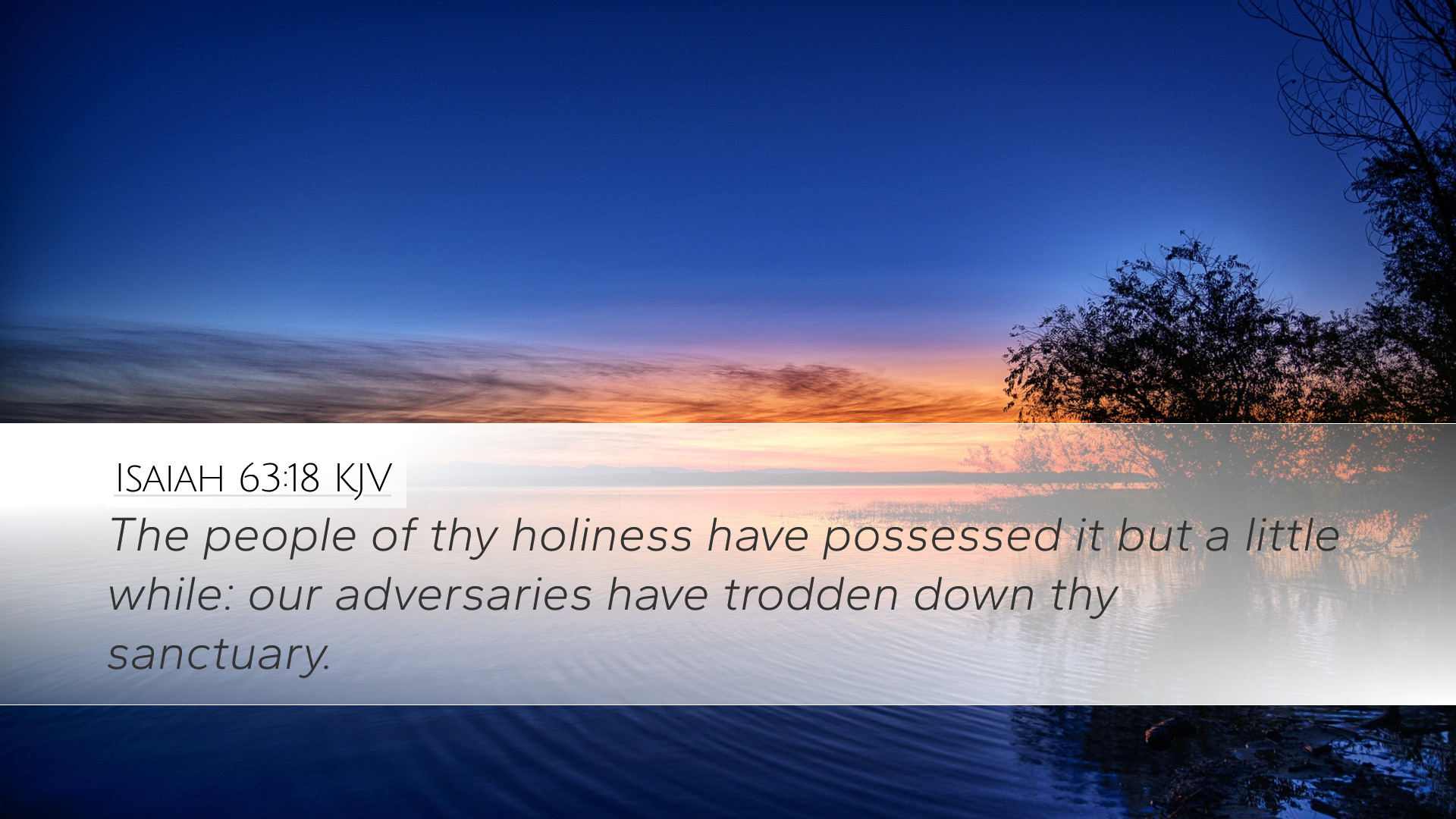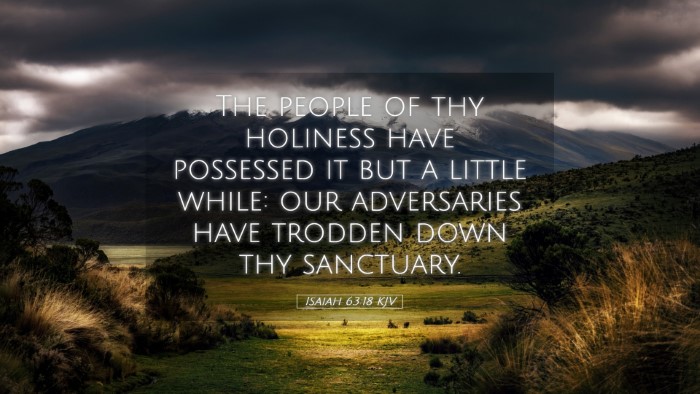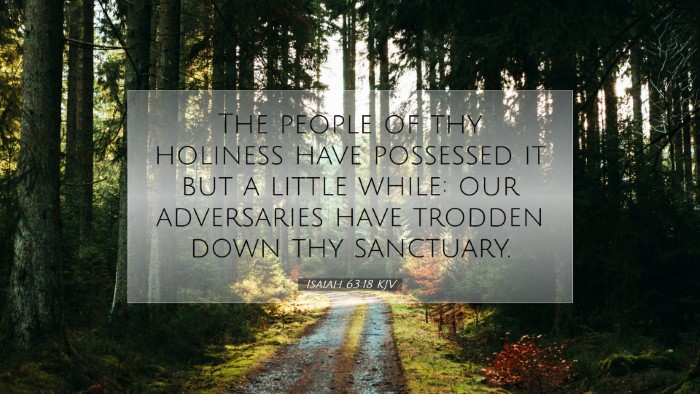Commentary on Isaiah 63:18
Isaiah 63:18 states:
"The people of Your holiness have possessed it but a little while; our adversaries have trodden down Your sanctuary."
This verse encapsulates a cry of lamentation and a sense of loss experienced by the people of Israel. The context is crucial for understanding the profound implications contained in these words.
Contextual Overview
Isaiah 63 can be seen as a part of a larger prophetic discourse where themes of redemption, judgment, and the hope of restoration are prevalent. It reflects Israel’s historical struggles and their relationship with God amidst adversity.
Insights from Matthew Henry
Matthew Henry elaborates on the condition of the people as "the people of Your holiness," emphasizing a divine separation and identity that marks Israel as God’s chosen people. He notes:
- Brief Possession: Henry stresses that Israel's possession of their land and blessings was "but a little while," indicating that their time of enjoying God’s gifts was fleeting.
- God’s Sanctuary: The mention of adversaries treading down God’s sanctuary speaks to the desecration and suffering they endured, reminding the faithful of the sanctity of God's dwelling and the grief that comes when it falls into disrepair due to external oppression.
Thoughts from Albert Barnes
Albert Barnes provides a theological reflection on the verse, highlighting the contrasts present in the text. He observes that:
- Covenant Relationship: Barnes underscores that the term "Your holiness" points to the profound relationship God has with His people. It symbolizes both their commitment to God and the divine standards by which they are to live.
- Challenge of Adversaries: The adversaries are reminded as a persistent reality, symbolizing all forces that stand against God’s people. This oppression is a critical factor in their identity as a people who suffer yet maintain hope.
Reflections from Adam Clarke
Adam Clarke enhances the discussion by analyzing the spirit of lament within the text. He argues:
- Temporal Suffering: Clarke interprets the "little while" as a metaphor for the transient nature of Israel's peace and privilege. He compares it to their historical experiences under foreign domination.
- Destruction of the Sanctuary: He discusses the gravity of seeing God's sanctuary trampled, expressing that such a reality could lead to questioning God's promises and presence among His people.
- Divine Intervention: He emphasizes that the pleas for divine intervention arise from an awareness of God’s previous workings within the nation. The lament urges believers to remember the history of God’s faithfulness even in dire times.
Theological Implications
The theological implications of Isaiah 63:18 are significant for contemporary readers. This verse serves as a reminder of the:
- Enduring Identity: The faithful are called to recognize their identity as God’s people, which persists regardless of external circumstances.
- Hope in Despair: The lamentation is not without hope; it conveys a yearning for restoration and divine deliverance that resonates through the ages.
- Challenge of Adversity: Every believer must confront adversaries that tread against the sanctity of God’s promises, and this challenge offers opportunities for spiritual growth and resilience.
Conclusion
Isaiah 63:18 encapsulates profound truths regarding the human experience under divine covenant. In reflecting upon this verse, the insights gathered from Matthew Henry, Albert Barnes, and Adam Clarke remind pastors, students, theologians, and scholars of the ongoing nature of God’s relationship with His people, the reality of suffering, and the hope that lies in divine faithfulness.


